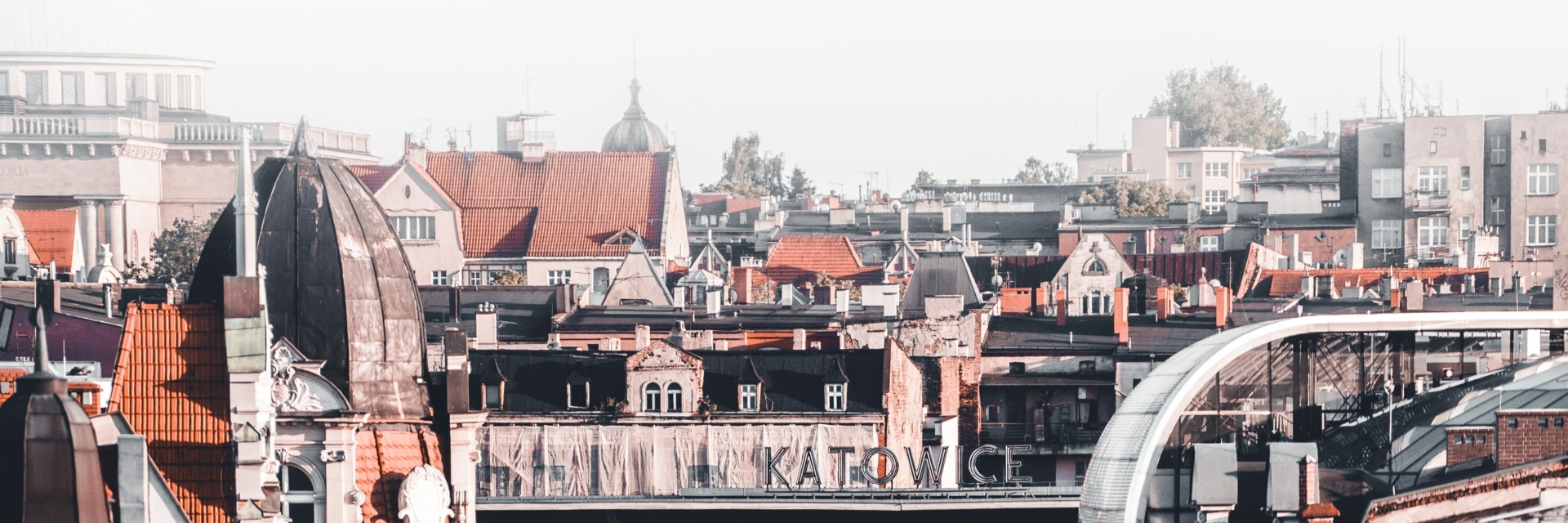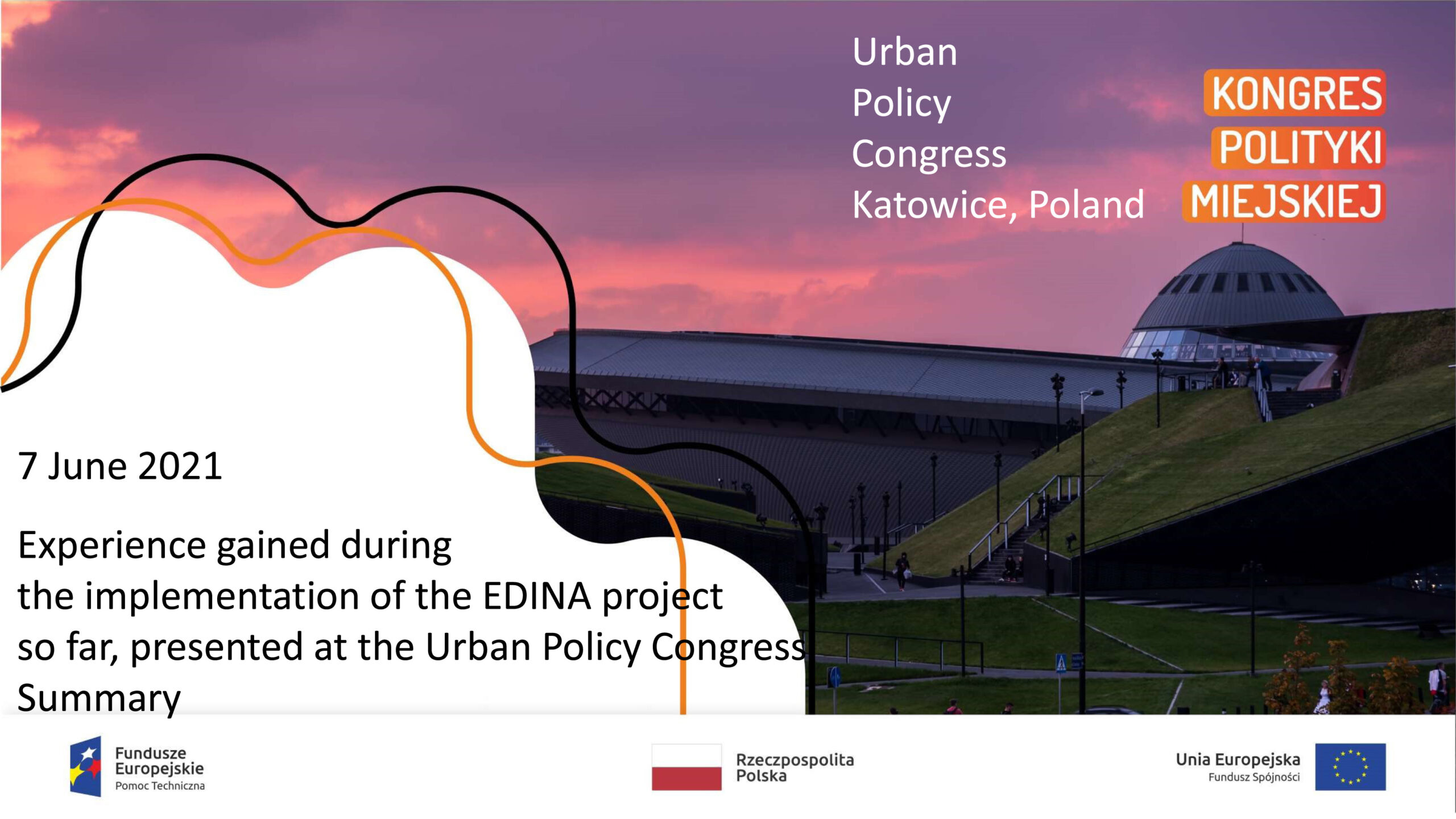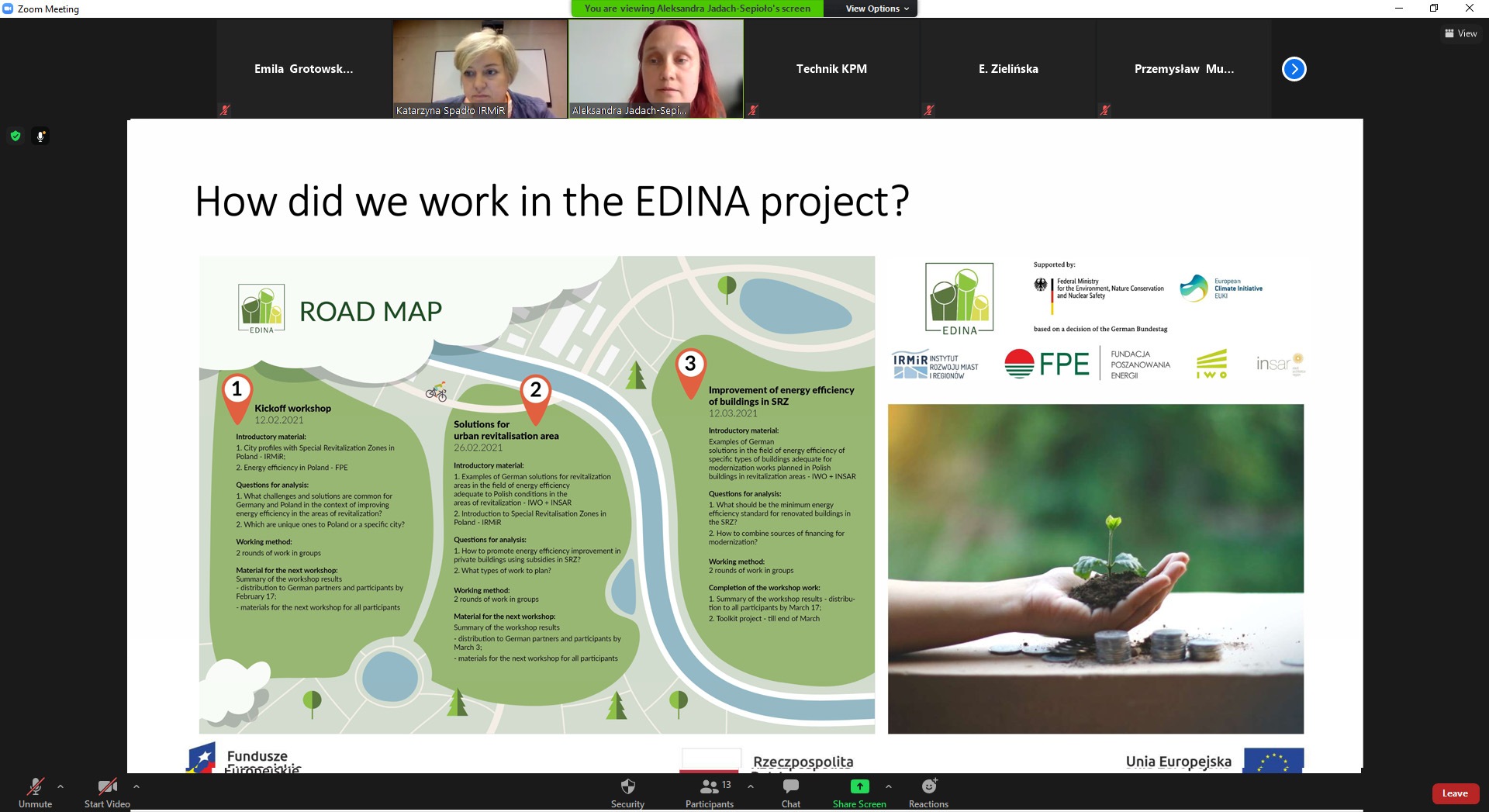EDINA project experience during the Urban Policy Congress in Katowice (Poland)


Further Information
Project „EDINA – Energy-efficient development of special revitalisation zones and urban areas” aims to support the improvement of energy efficiency in renovated private buildings in revitalisation areas in Poland through a series of information meetings, workshops and training sessions. It aims at raising awareness on energy efficiency among all actors involved in revitalisation processes in Poland.
The main objective of the EDINA project is to prepare a Toolkit for measures and ways to improve energy efficiency in the municipalities implementing revitalisation programmes, including the areas with difficult ownership relations or spatial conditions.

The workshop that took place on 7th June 2021, as part of the Urban Policy Congress in Katowice, enabled to formulate the following conclusions:
- Contrary to popular opinion, revitalisation within the Special Revitalisation Zone does not have to be only associated with the building aesthetic improvements.
- Improvement of the building energy efficiency can be supported by special subsidies possible in the Special Revitalisation Zones, although thermal efficiency improvement (thermomodernisation) is not included in the catalogue of necessary expenditures cited in Article 77 of the Act on the protection and care of monuments.
- Improving the building energy efficiency during renovations subsidised in the Special Revitalisation Zones can be achieved by increasing the requirements for technical parameters of construction materials to be used in the renovation process or by additional criteria for a subsidy, such as former replacement of a heating source or modernisation of technical installations aiming at improving energy parameters of a building.
- It is difficult to carry out comprehensive renovations within the Special Revitalisation Zone solutions, taking into account the limitations of the catalogue of necessary works resulting from Article 77 of the Act on the protection and care of monuments. In order to support comprehensive renovations of private buildings in Special Revitalisation Zones, it is worth promoting the combination of the subsidy programme under the Special Revitalisation Zones with other financial support like for example: thermomodernisation relief, “Clean Air”, STOP SMOG or ELENA programmes.
- Combining various financial sources for renovation expenses means that the investor has to conduct works in stages, as each donor has different requirements in terms of contribution, catalogue of eligible costs, settlement period. That is why it is difficult to implement several sources of funding at the same time during a renovation process.
- A subsidy for the renovation of private buildings in the Special Revitalisation Zones does not require an energy audit. However, it is worth considering it, if a complex modernisation process, including improvement of the entire building energy parameters, is planned for a longer period.
The workshop participants, working in two groups, concentrated on a discussion on the advantages and disadvantages of different approaches to subsidy programmes in Special Revitalisation Zones: a detailed one, with separate renovation blocks dedicated to particular types of projects, and a general one with no specific level of funding or types of projects.
The first group opted for a simple subsidy programme, as being more clear and easier for private investors. At the same time, it was pointed out that detailed grant programmes can also be a challenge for municipality employers handling grant applications.
The second group, on the other hand, underlined the advantages of the second solution, which are: a municipality aware of the priorities in the field of revitalisation should define them by means of an intelligent subsidy programme dedicated the Zone, because only in that way it is able to achieve more quickly complex objectives of the revitalisation process.
Recommendations from the workshop give a possibility to develop a uniform grant application form for different grant programmes (e. g. for SRZ grants, for conservation grants) to improve access to financial instruments.
The conclusions from the workshop will be used in the Toolkit containing developed methods, guidelines and standards for improving energy efficiency.
This project is developed by the Institute of Urban and Regional Development together with two partners: Energy Conservation Foundation (FPE) and Housing Initiative for Eastern Europe (IWO e.V.). This project is part of the European Climate Initiative (EUKI). The EUKI is a project financing instrument by the German Federal Ministry for Economic Affairs and Climate Action (BMWK). The overarching goal of the EUKI is to foster climate cooperation within the European Union (EU) in order to mitigate greenhouse gas emissions.
